Student-Led HAAPIE Initiative Educates Health Care Professionals on Cultural Intelligence, Improved Care for Diverse Populations
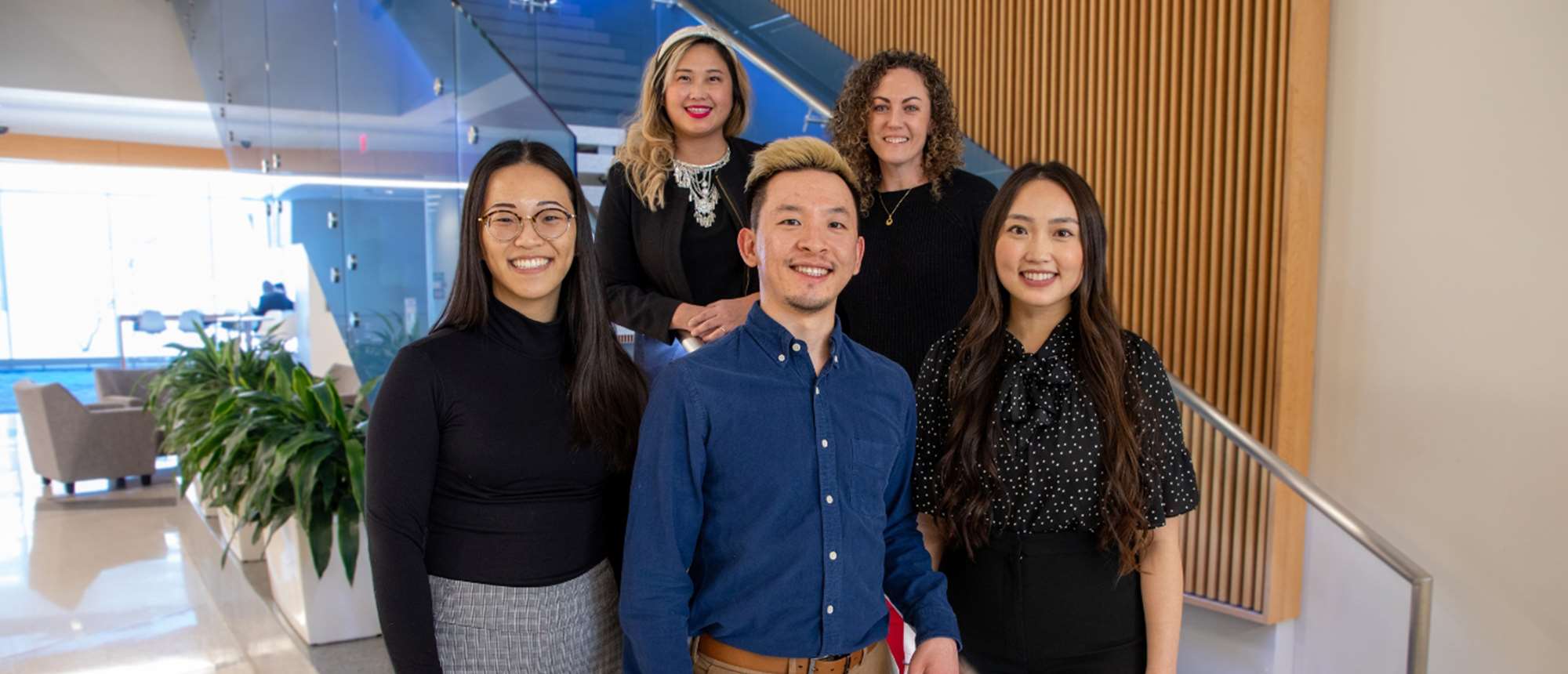
Three MCW medical students are creating an educational pipeline for future health care providers to become better equipped to care for Asian American, Native Hawaiian and Pacific Islander (AANHPI) populations.
The Health Advancement for Asian Pacific Islanders through Education (HAAPIE) Initiative raises awareness about health issues through various lenses including historical trauma and social determinants of health. Through a set of online modules, the inaugural curriculum includes a local spotlight on the Hmong community, plus case studies on cancer, diabetes, mental health and cardiovascular diseases.
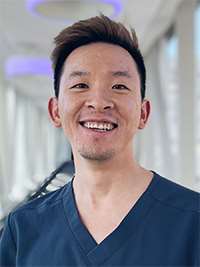 “People don’t really know how diverse this population is – don’t really know our stories, don’t really know the challenges that have been experienced by a lot of these populations, especially in the realm of health care,” says HAAPIE co-founder and executive director Ming Lin, MS, a third-year MCW medical student.
“People don’t really know how diverse this population is – don’t really know our stories, don’t really know the challenges that have been experienced by a lot of these populations, especially in the realm of health care,” says HAAPIE co-founder and executive director Ming Lin, MS, a third-year MCW medical student.
Lin joined together with classmates and co-founders Joyce Lee, MS, and Iaong Vang, finding motivation to start this project during the COVID-19 pandemic when anti-Asian racism and hate speech surged. Other impetuses for the project were their individual experiences growing up Asian American in different parts of the country.
“A lot of this was driven through personal stories of myself growing up, coming to a completely new country, not knowing anything,” says Lin, who was born in China and grew up in Minnesota. “I remember being constantly made fun of on the bus by kids who had never seen an Asian person before in their life. They felt it was OK to make fun of how I looked, how I talked and the food I brought to school. I constantly refer back to those memories because I am proud to be Asian American, but at the same time, I never felt like I fully belonged here.”
When he was older, Lin was a caretaker for his mom, who was fearful of going to the doctor and had to undergo cancer treatment with doctors who didn’t understand her.
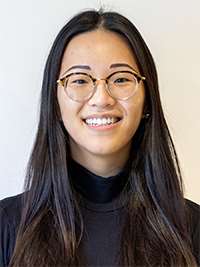 Meanwhile, Lee was born in Taiwan and immigrated to East Los Angeles when she was 8 years old. She grew up surrounded primarily by Asians and very few individuals from Black and Latinx populations. “I pretty much grew up around people who looked exactly like me, and it didn’t make me feel like I was out of place or unwelcome by any of the communities in SoCal,” says Lee.
Meanwhile, Lee was born in Taiwan and immigrated to East Los Angeles when she was 8 years old. She grew up surrounded primarily by Asians and very few individuals from Black and Latinx populations. “I pretty much grew up around people who looked exactly like me, and it didn’t make me feel like I was out of place or unwelcome by any of the communities in SoCal,” says Lee.
“When I was growing up, all my doctors – from pediatricians to optometrists to dentists – everyone spoke Mandarin or Taiwanese, which helped because my mom only knew how to speak these languages,” she adds. “So I didn’t have the unfortunate event of having to meet doctors who didn’t completely get who we were because all of my doctors grew up exactly like how we did.”
When she moved to New York City for her master’s degree, Lee says she experienced a culture shock, but living in a place where most people looked different from her gave her an appreciation of her own background and opportunities to learn about other cultures.
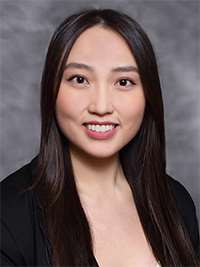 Vang is the daughter of Hmong refugees from Laos and was born and raised in Montana. She says where she started to feel true discrimination was in medicine.
Vang is the daughter of Hmong refugees from Laos and was born and raised in Montana. She says where she started to feel true discrimination was in medicine.
She has a sister with Bardet-Biedl syndrome, a genetic disorder, who was misdiagnosed when she was born. “My parents knew nothing about that condition, were not familiar with Western medicine and didn’t trust the people here. There was no follow-up until she became critically ill her senior year of high school,” says Vang.
Vang was her sister’s caregiver as well as the interpreter and mediator between her parents and doctors. She says she didn’t notice the discriminatory practices her family experienced until she went to college and started working in the medical field. At that point, she had a realization about her family being treated differently: doctors not listening, forcing her parents to sign papers they didn’t understand and taking medical actions without the full consent of her sister.
“I didn’t really notice all these things until I was actually in the field of medicine, and I wanted to do something about it,” says Vang. “I definitely wanted to be a part of HAAPIE to provide a voice for my people, people with similar stories … and also to encompass and showcase the diversity of the AANHPI population, especially those who are overlooked and rarely recognized.”
Prioritizing Cultural Intelligence in Health Care
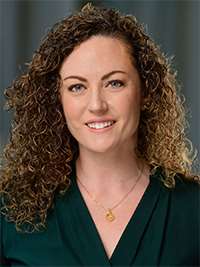 In addition to promoting better health care for AANHPI populations, the HAAPIE Initiative is more broadly focused on cultural intelligence, which Lana Minshew, PhD, assistant professor in the MCW School of Pharmacy, and colleagues defined in 2021 as “the ability to attune to the values, beliefs and body language of people from different cultures and to effectively use this knowledge to interact with empathy and understanding in diverse contexts.”
In addition to promoting better health care for AANHPI populations, the HAAPIE Initiative is more broadly focused on cultural intelligence, which Lana Minshew, PhD, assistant professor in the MCW School of Pharmacy, and colleagues defined in 2021 as “the ability to attune to the values, beliefs and body language of people from different cultures and to effectively use this knowledge to interact with empathy and understanding in diverse contexts.”
“We want to engage the learners to want to learn more about people of other backgrounds and ask questions that can be applicable to any person – not just the AANHPI population,” says Lee. “We want them to learn about the questions to ask, how to respond to patients and deliver the best medical care you can.”
Lin hopes participants walk away with a sustained desire to learn more: “I want our whole team to think about: ‘How do we not only teach, but also motivate and inspire?’ I hope that by the end of the curriculum, students leave with a sense of curiosity. I want them to leave not knowing all of what they need to know. I want them to be in a mode of suspense, so to speak – to go out and find their own ways of learning more about our populations.”
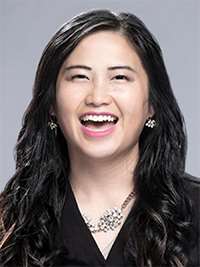 The HAAPIE student co-founders collaborated on the curriculum development and outreach with two MCW School of Pharmacy faculty leaders: Dr. Minshew and Kajua Lor, PharmD, BCACP, associate professor and chair of the School of Pharmacy Department of Clinical Sciences.
The HAAPIE student co-founders collaborated on the curriculum development and outreach with two MCW School of Pharmacy faculty leaders: Dr. Minshew and Kajua Lor, PharmD, BCACP, associate professor and chair of the School of Pharmacy Department of Clinical Sciences.
“For me, this initiative makes me feel more visible,” says Dr. Lor. “A lot of times diversity and inclusion work is focused on Black and white, not necessarily Asian. This curriculum gets at the point that not all Asians are alike. It builds the feeling of being included and belonging, and the most important thing, for me, is ensuring the voices of the community are heard.”
Dr. Minshew says she was brought on to the project due to her experience developing a framework to teach future pharmacists how to provide culturally intelligent care.
“Everyone deserves access to health care. But the equity within that access doesn’t exist,” says Dr. Lana Minshew. “Having the knowledge to be able to interact with different groups, being empathetic and using that knowledge to provide a caring environment is important to me.”
Expanding the HAAPIE Initiative
Going forward, Lin’s vision is to provide an even richer educational experience beyond digital lectures: “I’d like to have more community aspects of learning where students have chances to talk to and learn from people in the community instead of just learning through a screen. Learning through stories and narratives has always been the most impactful part of learning for me.”
Lee is working with the Asian Pacific American Medical Student Association (APAMSA) to push for a broad reach beyond the walls of MCW.
“I really want HAAPIE to be the launching pad for incorporating AANHPI medical education into the core curriculum of all different medical schools across the country. With that, hopefully it will bring in information from other minority populations as well, and not make any of this a separate elective that students can choose to pick up and learn on their own,” says Lee. “I want it to be fully integrated because the United States is such a melting pot, and no matter where you go, you’re going to encounter patients who look different from you.”



